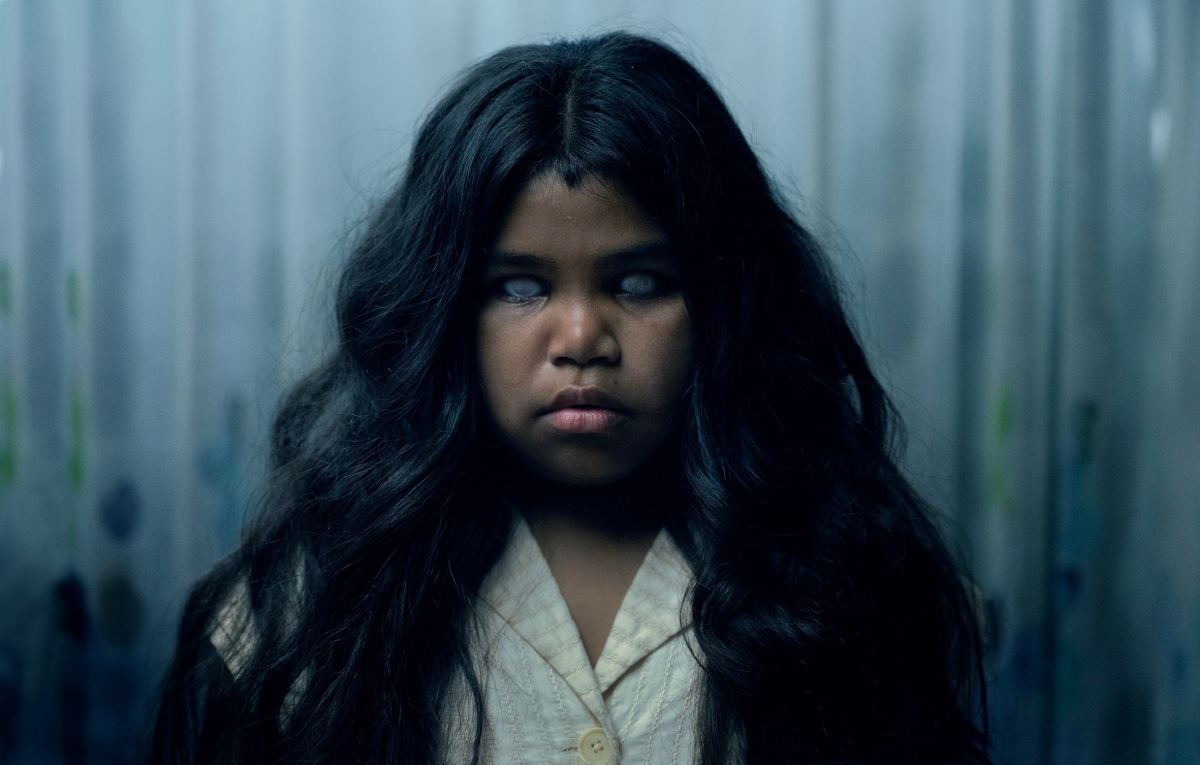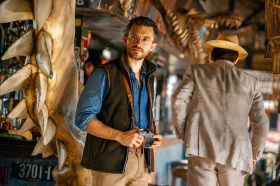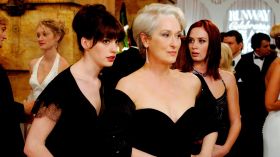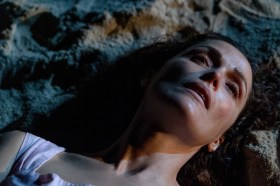As a nation of many stolen Nations, this place has barely begun to reckon with its genocidal past. The baleful brutality and malignant violence continues to manifest, most recently in Australia’s abject failure to even offer a Voice to Aboriginal and Torres Strait Islander peoples.
It’s there in the refusal to act on the 1987 Royal Commission into Aboriginal Deaths in Custody, and in the ongoing removal of First Nations children from their homes at alarming rates, despite the mealy mouthed ‘sorry’ offered in parliament for the unimaginable horror of the Stolen Generations and the scars of forced assimilation.
These themes coalesce around The Moogai, the debut feature from writer/director and Bundjalung/Wiradjuri man Jon Bell. Expanding on the short film of the same name, Bell casts star of stage and screen Sharri Sebbens as hot-shot lawyer Sarah, who finds herself caught in the vortex of this maelstrom of heavy history. She’s at the top of her game as she heads on maternity leave, winning major contracts and wiping the floor with a boorish bloke at the office, laughing off his absurdities with co-worker Becky (Bella Heathcote).
New son Jacob’s deeply traumatic, life-threatening birth leaves Sarah convalescing in the austerely minimal home she shares with tradie husband Fergus (a top-notch Meyne Wyatt). Raised by adoptive white parents she loves, Sarah is in contact with, but emotionally estranged from her birth mother Ruth, as played by a towering Tessa Rose.
Sarah will have none of Ruth attempting to sage the joint or daub her stark grey walls with amber-hued ochre, nor feed Jacob traces of the stuff for protection. It irks Sarah that Fergus and their young daughter Chloe (Jahdeana Mary) enjoy an ease with Ruth she just can’t find.
While this clash between cultures and the nuance in Sarah’s conflict could have been teased out more, the implications hang heavy over everything that follows.
The Moogai: beware the boogeyman
Implications are established by the powerful flashback sequence that bookends the film, an impressive sequence that could easily have merited its feature. In the opening moments, we see a young Ruth (Aisha Alma) and her sister Agnes (Precious Ann) playing with a bunch of kids in the long grass. But when an Elder woman watching over them is startled by the arrival of a car bearing two suited and smirking white men coming for their kids, her whistled code sends the young ones fleeing for cover.
Agnes hides in a menacing cave entrance, with Ruth arriving just in time to get a glimpse of the monstrous creation of the title – a Bundjalung word for the boogeyman – dragging her sister into the depths and clawing the scars that Ruth carries on her face to this day.
Rather than externalising the threat to First Nations kids posed by white people since invasion, the Moogai is, instead, a distillation of that same poisonous evil that would steal them from their loving parents. A colonising force of destruction so hideous it has torn a hole in the natural order through which creeps this monstrous beast.
Read: In Vitro, SFF review: ecological horror meets domestic drama
Matriarchal power
If Sarah won’t trust in Ruth’s attempt to ward off the taloned force that has so clearly marked their family, it speaks volumes of the intergenerational trauma carried by too many First Nations peoples. But even as she rejects the old ways, Sarah is troubled by disturbing visions that appear to threaten baby Jacob.
Melding classic creepy jump scares in the dark with waking nightmares in broad daylight, these trials also ramp up another interesting, if slightly too briskly dealt with angle: the failure of medical practitioners to properly listen to women, especially women of colour.
There’s a jaw-drop moment at Chloe’s school that throws up how quickly performative allyship can drop through a shocking moment delivered by Heathcote. Wyatt also does a remarkable job depicting a stoically supportive husband, but also one who, despite his closeness with Ruth, refuses to believe what Sarah is seeing. And there’s power in his pointed response when his wife is mad at him for not standing up for her at Chloe’s school –– when he says that no one listens to ‘an angry Black man’.
There’s a powerful undercurrent here and in his startling misjudgement, dramatically intervening in Sarah’s worsening mental state, that could and probably should have been given more room to breathe in what clocks in at a brisk 86 minutes. While Sebbens is a remarkable actor, the lack of space given over to fully explore some of this knottier stuff leaves a few critical scenes feeling a touch underplayed.
It’s a rare occasion, these days, that I’d argue that a film should be longer, but it speaks to the power of Bell’s story that an extra scene or even a beat here and there would further tease out the strength of what’s already there. By the time we get to the matriarchal power of the fire-lit ‘final women’ battle, the film underlines that the Moogai is less important than the scars it crawled through.
Superbly captured by cinematographer Sean Ryan, this sequence rips open the old wounds of the Stolen Generation, yet offers the hope of healing. Mighty stuff that reminds this always was and always will be Aboriginal land.
The Moogai screened at Sydney Film Festival on 8 & 9 June 2024. The Australian distributor is Maslow Entertainment.





